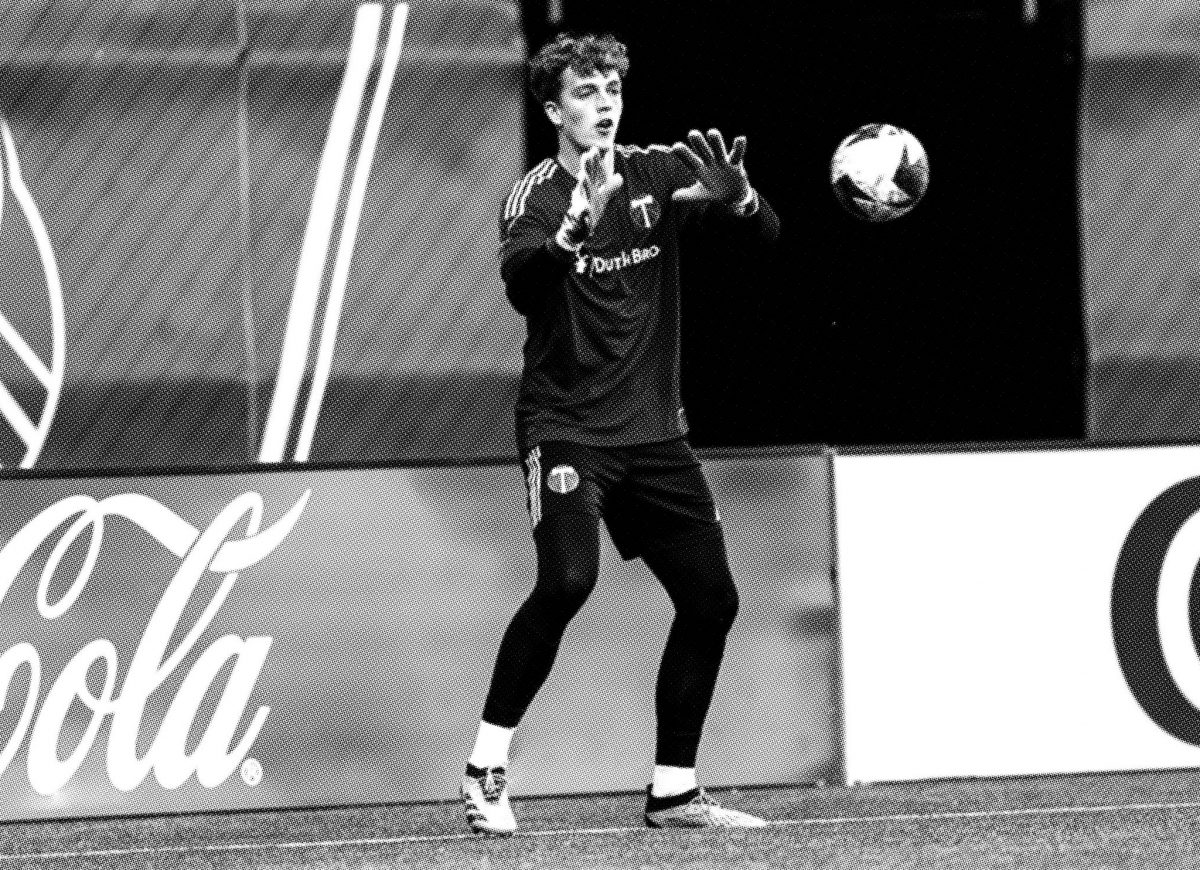Midfielder Grace Santos and goalkeeper Carver Miller made their professional debuts 73 days and a continent apart.
Santos’ team won in Reykjavík, Iceland. Miller’s squad triumphed in Portland, Oregon. Neither victory came easily.
Santos set up for a corner kick on April 27 knowing her team, Fram F.C., was the underdog in a clash with HK Kópavogur, the higher-seeded opponent in the 2023 Iceland Women’s Football League Cup.
Miller dove to block a shot from the visiting Sporting Kansas City II on July 9, but the ball clipped his outstretched fingers and careened into the Portland Timbers2’s net to put Miller’s team in a one-goal deficit during his debut for Major League Soccer’s Portland Timbers’ reserve team.
It was a good thing Santos and Miller know how to convince opponents to take them seriously.
Back when each of them began working with Price Thomas and his Charlottesville-based youth soccer consulting program, Gradum, neither were expected to become part of the less than 1 percent of soccer players who make it professionally.
“It’s a wild story of two kids who people were not particularly high on, who have worked themselves into great positions, and who still have a long way to go,” Thomas says. “Both of them were very single-minded, very committed to this dream of playing … and even without a ton of positive feedback, they still had all the trappings of two players who would be successful.”
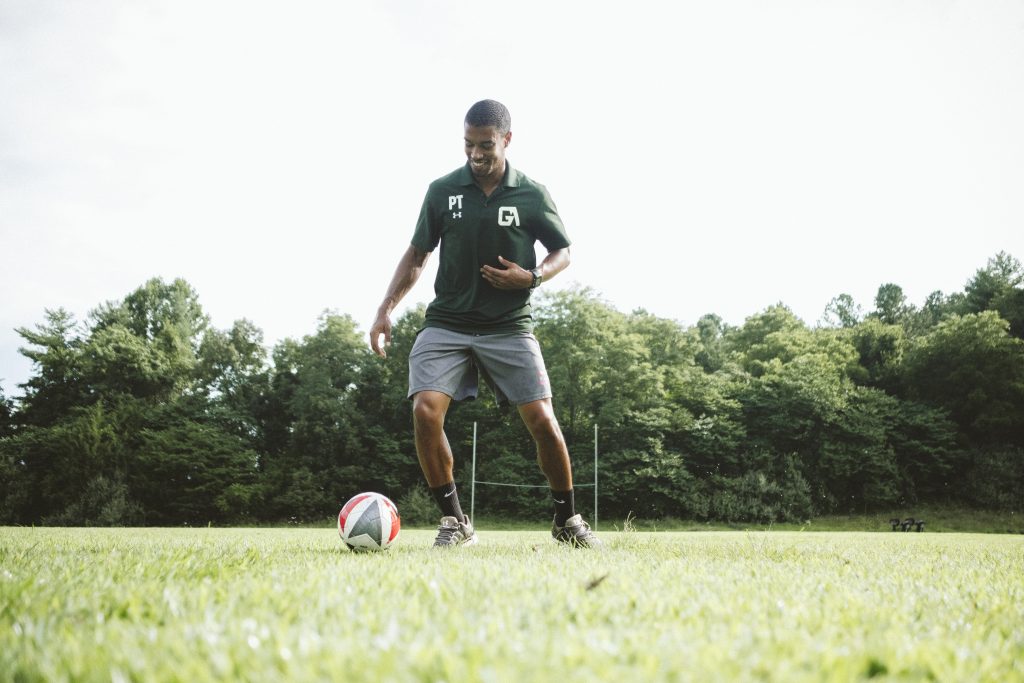
The difficulty with talent evaluation of young athletes is that scouts and coaches assess, by subjective metrics, the talent ceilings of kids with both physical and mental growing left to do.
Some athletes dismissed by coaches in their early teens still have the capability to play at high levels as adults, if they work consistently enough on the right parts of their game. Those are the athletes Thomas aimed to work with when he first launched Gradum in 2016.
The project began as an effort to create an offseason training program for Thomas’ sister Carmen, a former player for JMU. Eventually, it grew into individualized consulting for young players across Charlottesville, including economically disadvantaged and minority athletes funded by Thomas’ nonprofit, the Ireland Street Foundation.
“There was a gap in the market for who was helping these high-achieving kids who wanted to play in college, who wanted to play professionally,” Thomas says. “We found ourselves in the spot where we were really able to help move some of these kids along who were kind of in a gray area, who weren’t really getting the right support.”
Santos, then age 16, became one of Gradum’s first players during a time she says she “really wasn’t getting any support from my club in high school.”
“When everyone else was telling me I needed to aim lower in my expectations on what my career could look like,” says Santos, “Price was the one who actually believed in me enough to map out what the path to the next level would look like.”
Santos is a Scottsville native who grew up watching Emily Sonnett lead the Cavaliers to ACC dominance. She had a technician’s grasp of soccer. What she lacked was the athleticism of other Division I bound players her age.
This didn’t faze Thomas. He put together a plan to build her physical game from the ground up, a strategy Santos jokes involved teaching her how to run.
In a little over a year, she had begun getting offers from DI schools.
Santos’ college career took her from William & Mary to Arizona and finally to UVA, where she had dreamed of playing ever since she was a 10-year-old sitting on the bleachers at Klockner Stadium.
During summers, she still returned to Gradum to help Thomas as a technical training instructor.
“I think the cool part about training is that I’m doing what they want to do, sort of like Price was for me,” Santos says. “He had been through it all. He knew and could relate to everything I was going through. I feel like I can bring the same thing to a lot of these kids who either want to play in college or play professionally.”
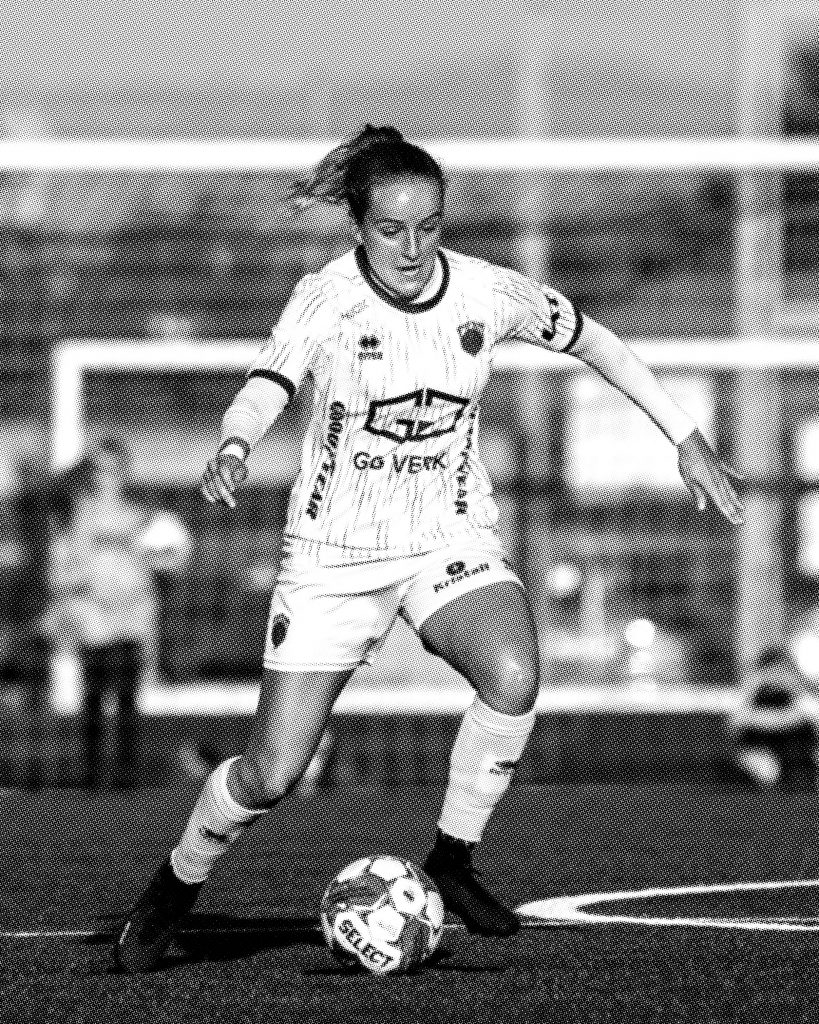
Santos and her brother Nate, a fellow Gradum trainee and Stetson soccer commit, were both present at the Gradum practice where 14-year-old Miller first took the field with Thomas.
It was a tough introduction to pro-level conditioning for Miller, who ended the practice by vomiting. He recovered, straightened, and asked Thomas what time he should come back tomorrow.
That’s when Thomas knew the younger goalkeeper had the necessary drive to succeed.
Miller, who had climbed the ranks of SOCA (Soccer Organization Charlottesville Area) since moving to Charlottesville at age 4, already knew he loved being a goalkeeper. Now, he wanted to excel at it.
Thomas, a lifelong field player, leaned on outside experts like Jake Davis, who works with goalkeepers on the Virginia women’s soccer team, to teach Miller the basics of guarding the net.
With that foundation in place, Thomas got to work on the technical minutiae. The two met almost every day during summer 2018 as Thomas helped Miller hone his agility, putting him through band and resistance work until the goalkeeper could burst into sudden movement from any corner of the net.
Thomas also worked with Miller on his mental game. For a goalkeeper, arguably the toughest mental position on the field, that involved keeping him engaged in a game that demanded his attention for 90 full minutes, helping him bounce back from goals against and making him a coachable player able to learn from criticism.
Miller used those skills while playing for youth academies in Richmond and Washington, D.C., as well as most recently during two seasons in Germany, where he dialed Thomas’ number often.
“Even between the time difference, he would always pick up,” says Miller. “He was a good outlet for me, especially when times are rough.”
Thomas, who played at William & Mary before launching his professional career in Turkey, Germany, and Sweden, knew precisely the kind of challenges faced by a young player adapting to playing overseas.
He advised Miller to stabilize himself by setting a routine from a favorite restaurant to a regular grocery store, and also told him not to forget to enjoy his time there.
“You’re 17 years old, going to do the thing you love overseas. That is truly a one-in-a-million opportunity,” Thomas says. “When we would talk, it wasn’t a lot of soccer stuff. It wasn’t a lot of tactical stuff. It was more of how to embrace and how to enjoy the moment.”

Reykjavík, which boasts a similar population to Albemarle County, is host to 30 different women’s soccer clubs, according to Santos. Their games, a major part of the city’s social life, draw energetic crowds armed with drums.
Santos’ Icelandic is limited to the words for “try again,” “good job,” and “thank you,” so she generally does not understand the crowds’ chants.
She did, however, understand the crowd’s excitement when her corner kick made it to the back of the net to help lift Fram to a 3-1 upset victory in her professional debut.
Santos finished that game with an assist, a goal, and a starting role on the team.
After years spent admiring the Virginia team, where she believes players embody a “beautiful” brand of possession-oriented soccer, the physicality of the Icelandic league took Santos by surprise. It was a thrill to learn she could compete in it.
At least, she could until she was sidelined by a nagging ankle injury that necessitated surgery.
Santos returned to Charlottesville for surgery, then navigated a month on crutches and a frustrating recovery process with Thomas to help her safely pace her return to the field.
Now back in Iceland, Santos stays in touch with her Charlottesville support system—her brother, her pickup group, her coaches, her UVA surgeon, and her parents, who she says “probably know more stats about the Icelandic league than I do”—through text and FaceTime.
That might be the case for the next few years. Santos is hoping to spend several more seasons playing professionally abroad on her newly repaired ankle.
“I think the biggest thing that I’ve learned is you’re really only as good as your support system,” Santos says. “I really would not be where I am today without all of their support.”
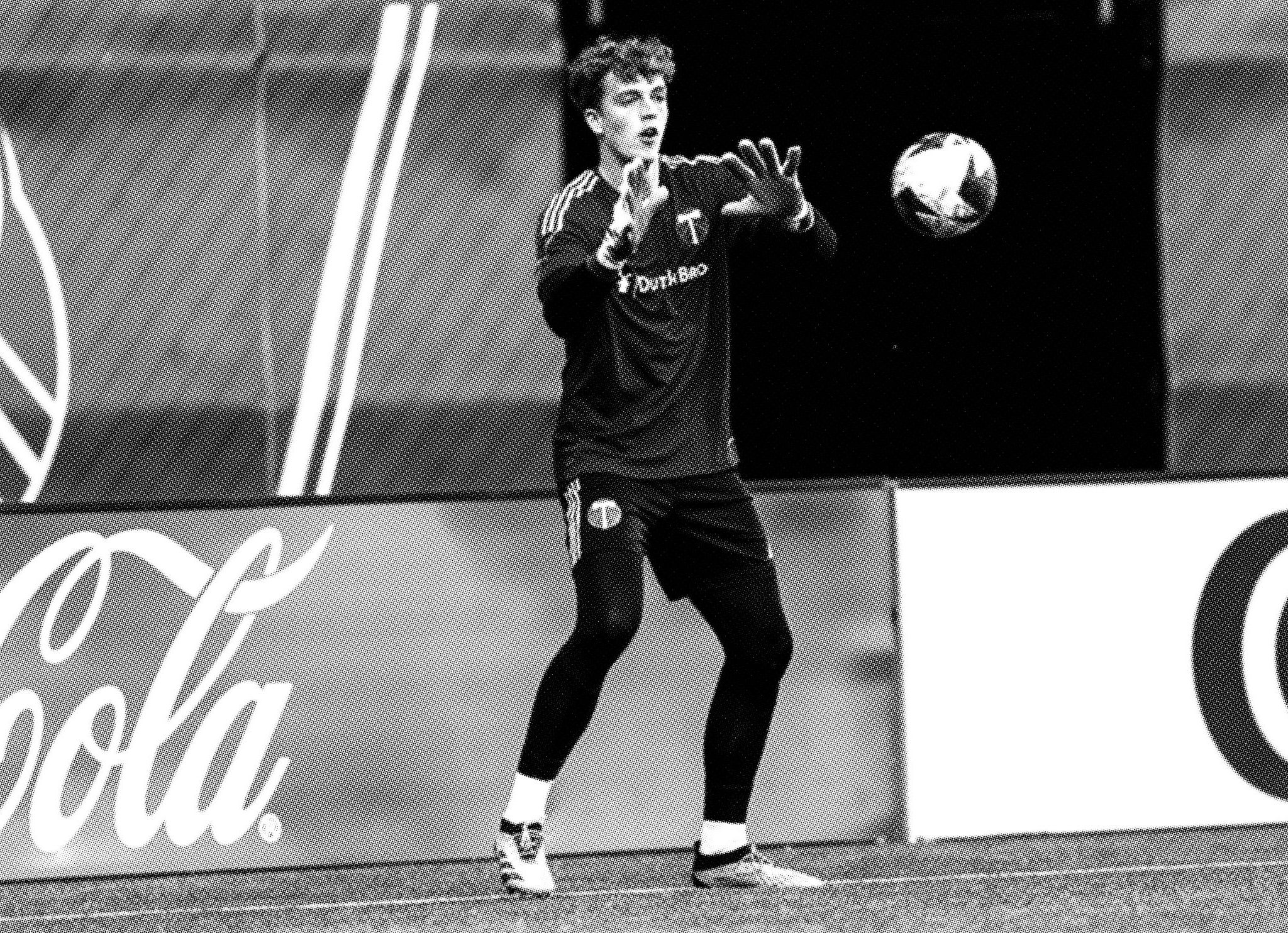
Miller’s pre-start routine involves sitting outside of the stadium, alone and away from his phone, and meditating over the best moments of his goalkeeping career.
His go-to memory in net took place with his German youth club, Arminia Bielefeld. During a fight for the top spot in the goalkeeping rotation, Miller turned aside a penalty kick—and the ensuing rebound—to earn a shutout and the No. 1 spot.
“The feeling after that game, I always go back to,” says Miller. “I just know that I’ve done it before, I’ve gotten this far, and there’s not much to stop me when I’m in the right mindset.”
That mindset was in danger of being shaken when Miller found himself on hands and knees, with a shot he believes he would have stopped eight times out of 10 in the net behind him, during his MLS NEXT Pro debut.
Miller shook himself, rose to his feet, and kicked the ball to center. There would be no shutout, but there were still 72 minutes left to win.
Miller went on to make seven straight saves, including one on a 74th-minute breakaway, to keep the visitors off the board as Portland surged to a 3-1 comeback victory.
“I just felt more comfortable [in the second half],” says Miller. “I was holding the ball a little bit more. I was a little bit looser … I had more opportunities to showcase my talent, and kind of show to the other team that you get one goal and that’s it.”
Miller, who turned 19 in June, is the youngest member of the Portland Timbers2. His debut has given him every reason to hope he has more starts to look forward to in the future.
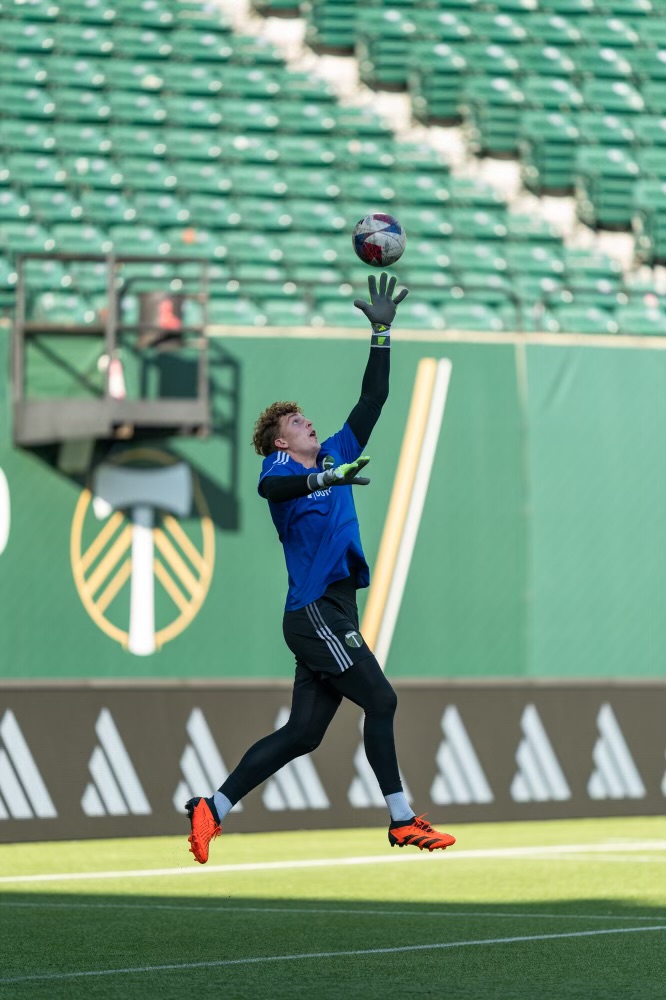
Miller and Santos trained, lifted, and prepared together this winter before the two headed off in opposite directions to make their professional debuts. They have kept in touch.
“We talk about the difficulties of being a pro, and the positives of being a pro, and living our dreams,” Miller says. “We’ve kind of gone through this process together.”
When Miller comes back in town, Thomas texts local players and suggests some swing by practice to take shots on a professional goalkeeper.
He rarely has trouble getting shooters to volunteer.
“It gives them an opportunity to say, ‘Wow, it’s possible,’” Thomas says. “And it’s great for me to be like, ‘Yeah, look at what he was able to do, but look at what he put into it to get out of it.’”
Miller, who has wanted to be a professional soccer player since fourth grade, is happy to play that role for the young members of Charlottesville’s soccer community.
“I wouldn’t be here if it wasn’t for the people in Charlottesville. It’s a great soccer town,” Miller says. “There’s great talent in Charlottesville, so I hope my story will tell the kids there to not give up. I was once the little kid playing at Johnson Village on the Johnson Village soccer field, dreaming of this.”
Miller and Santos are not the only rising stars working with Gradum. The program’s current contingent of college players includes Phebe Ryan at Yale, Gabi Andres at Villanova, and Christoph Kuttner at Radford.
Given the strength of the soccer community in Charlottesville, it feels like only a matter of time until another local player joins Santos and Miller in the pros.
“I never in my entire life would have thought that we would be able to create this kind of little community,” Thomas says. “They have the thing that they love, and that they share, and to see them experience that together and watch them grow through it … it’s been really rewarding.”
